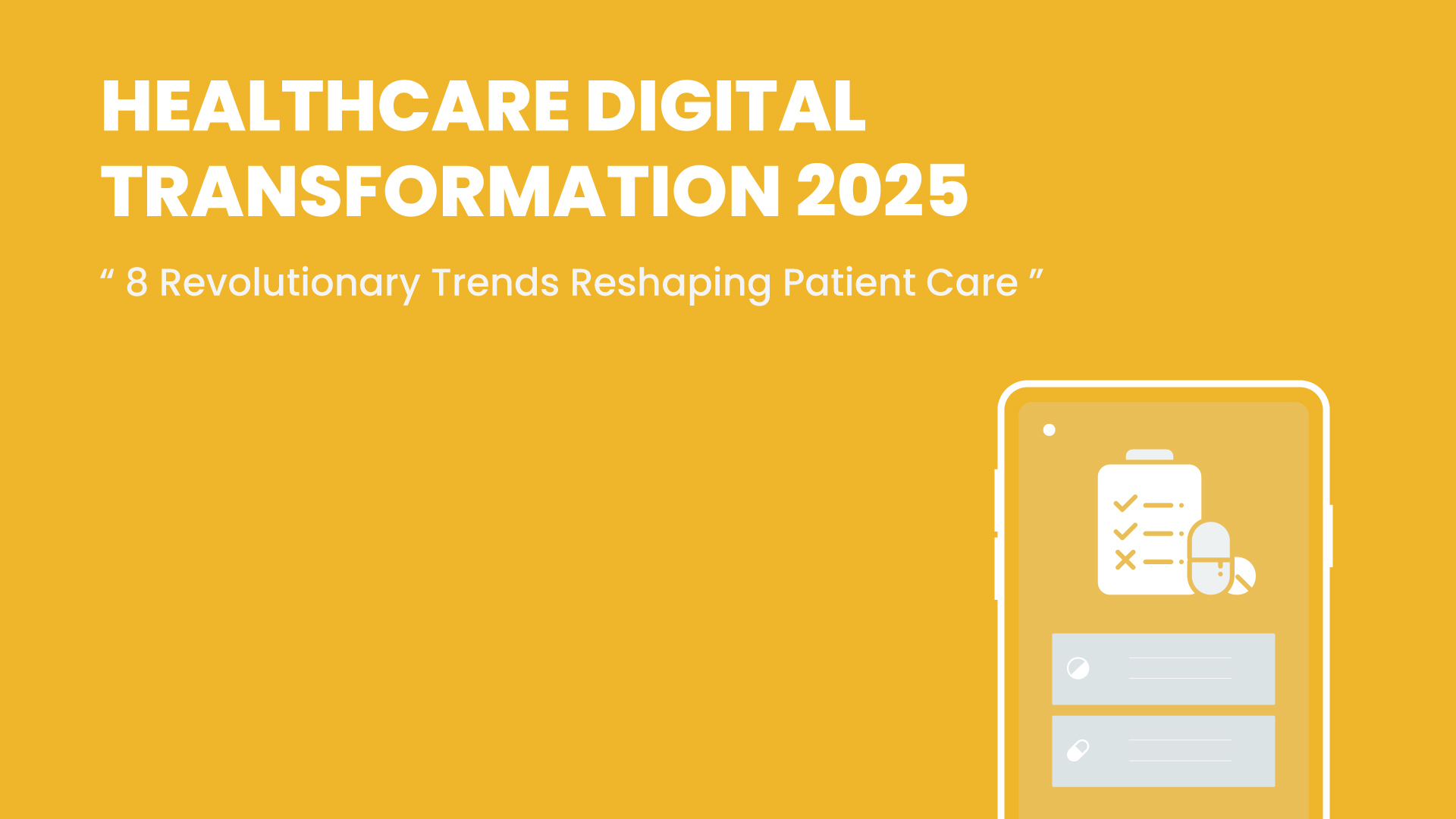
The healthcare industry stands at a pivotal moment. Digital transformation has evolved from an optional upgrade to an essential survival strategy for healthcare organizations worldwide. As we advance through 2025, digital health companies are launching into a more mature global marketplace with an expanding number of approval and reimbursement pathways that offer improved chances of future success.
At JIITAK, we understand that successful healthcare digital transformation requires more than just implementing new technologies, it demands a strategic, story-driven approach that addresses real market needs while ensuring sustainable outcomes.
Healthcare digital transformation represents a fundamental shift in how medical services are conceived, delivered, and experienced. It's the strategic integration of digital technologies across all aspects of healthcare operations, fundamentally changing how organizations operate and deliver value to patients.
This transformation encompasses everything from electronic health records and telemedicine platforms to AI-powered diagnostics and blockchain-secured patient data. The goal isn't just technological advancement, it's about creating more efficient, accessible, and patient-centered healthcare ecosystems.

Artificial intelligence is revolutionizing healthcare decision-making through predictive analytics. Machine learning, big data, and artificial intelligence (AI) in healthcare have actually transformed diagnostics, treatment, and other aspects to give us holistic care.
Healthcare organizations are leveraging AI to:
Implementation Strategy: Start with specific use cases like radiology image analysis or patient risk stratification before expanding to comprehensive AI integration.
Telemedicine will transform how healthcare services are accessed and delivered. It is thus integral to the future of healthcare. The evolution of telehealth now includes sophisticated virtual care ecosystems that go far beyond simple video consultations.
Modern telemedicine platforms feature:
Key Benefits: Reduced healthcare costs, improved access to specialists, and enhanced patient satisfaction through convenient care delivery.
Blockchain technology addresses one of healthcare's most critical challenges: secure, interoperable health data management. This distributed ledger technology ensures patient data integrity while enabling seamless information sharing between authorized providers.
Blockchain EHR advantages include:
Implementation Focus: Begin with pilot programs for specific patient populations before system-wide deployment.
Healthcare wearables, smartwatches, fitness trackers, etc, not only empower individuals to take charge of their health but also provide valuable data for healthcare providers for continuous patient monitoring and early intervention.
The IoMT ecosystem includes:
Strategic Value: Real-time health data enables proactive care management and reduces emergency interventions.
As healthcare becomes increasingly digital, cybersecurity has become paramount. Healthcare organizations are implementing multi-layered security approaches to protect sensitive patient information from evolving cyber threats.
Critical security measures include:
Risk Mitigation: Comprehensive cybersecurity strategies protect patient trust and ensure regulatory compliance.
Automation helps with cost-cutting, process simplification, and patient experience enhancement. Automation is anticipated to play a significant role in the digital transformation of the healthcare sector.
Automation applications in healthcare:
Efficiency Gains: Automation reduces administrative burden on healthcare professionals, allowing more focus on patient care.
Cloud computing provides healthcare organizations with the flexibility and scalability needed to adapt to changing demands. Modern cloud solutions offer secure, compliant environments specifically designed for healthcare data and applications.
Cloud healthcare benefits:
Strategic Advantage: Cloud solutions enable rapid deployment of new healthcare technologies and services.
Augmented and virtual reality technology are quietly gaining traction in healthcare. Indeed, tech giants are actively diving headfirst into this segment of healthcare.
AR/VR applications include:
Innovation Impact: AR/VR technologies enhance medical training effectiveness and improve patient understanding of complex medical procedures.

Successful healthcare digital transformation requires a methodical approach that balances innovation with practical implementation:
The healthcare digital transformation landscape continues to evolve rapidly. Organizations that embrace these trends proactively will be better positioned to deliver superior patient care while maintaining operational efficiency.
Key success factors for healthcare digital transformation include:
At JIITAK, we specialize in transforming raw healthcare innovation ideas into strategic, implementable solutions. Our expertise in sustainable digital transformation ensures that your healthcare organization not only adopts new technologies but also achieves lasting impact and improved patient outcomes.
We help healthcare organizations:
Ready to revolutionize your healthcare organization's digital capabilities?
Contact JIITAK today to begin your transformation journey toward more efficient, patient-centered care delivery.

.svg)